Fireberry's AI assistant
The AI assistant helps you easily and quickly derive information from tickets. It will help you create an efficient customer service system for categorizing and allocating tickets, and even provide you with suggested replies.
Adding the AI assistant
To add the AI assistant to your tickets page, start by opening the Tickets page layout. You can do this in two ways. The first is directly through the tickets object. Find and select the Tickets option in the top bar menu. Next, open any random ticket record. You can then click the three dots found in the right corner of the record header and select the Edit Page option. This will open the Tickets page layout editor assigned to the current user's role.

The second way to access the tickets page layout is through the object studio. Click the settings gear in the top right of any system page, and then, under the Settings tab, select the Object Studio page. Next, select the Tickets object to open its settings. Under Pages you can choose any ticket page you’d like to add the AI assistant to by clicking on the desired page.
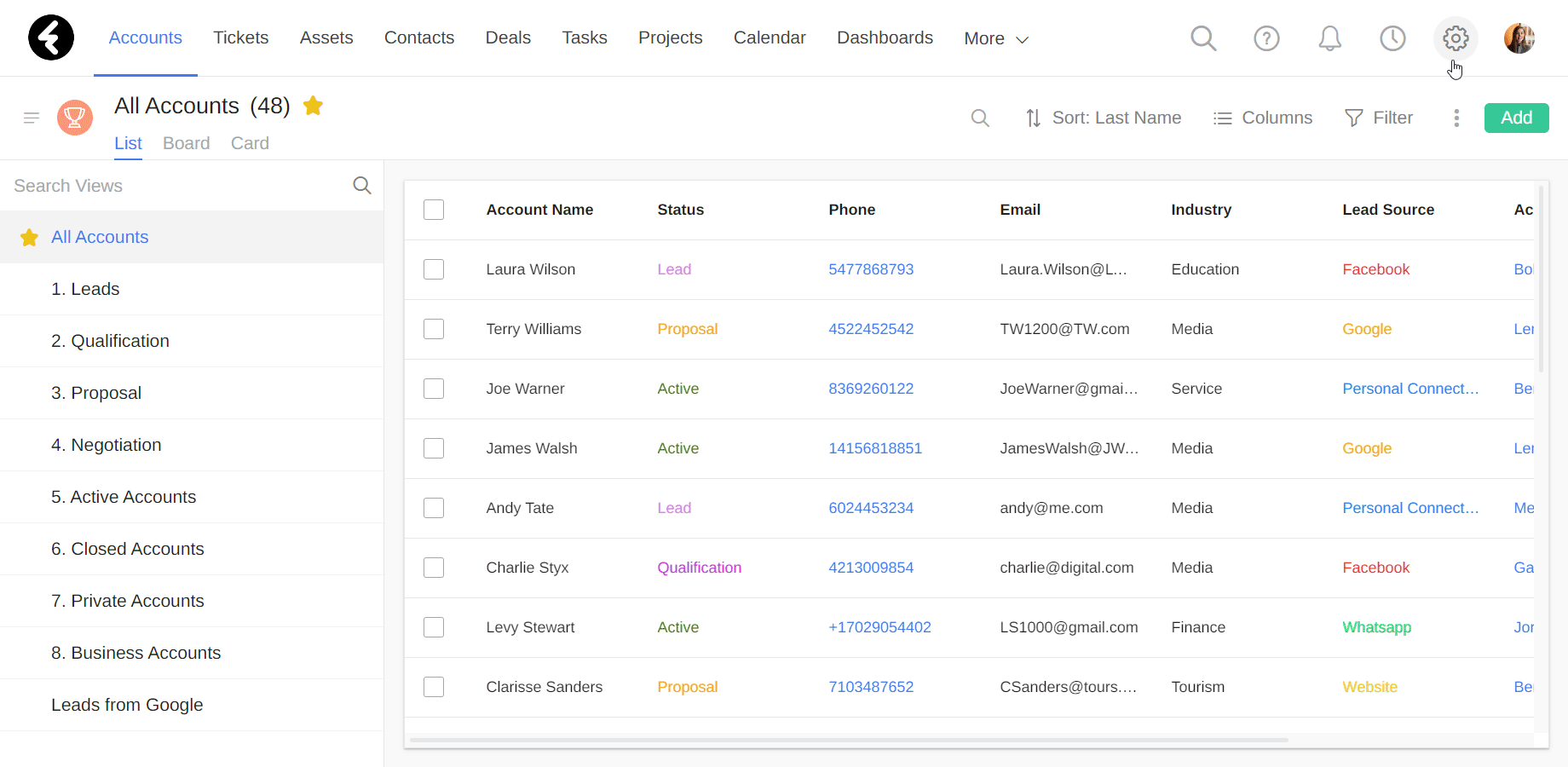
Now that you’ve opened the relevant ticket page layout, simply find the AI Assistant component from the list of components on the left and drag it to the desired location on your page. Be sure to click Save on the top right. To learn more about page layouts, click here.
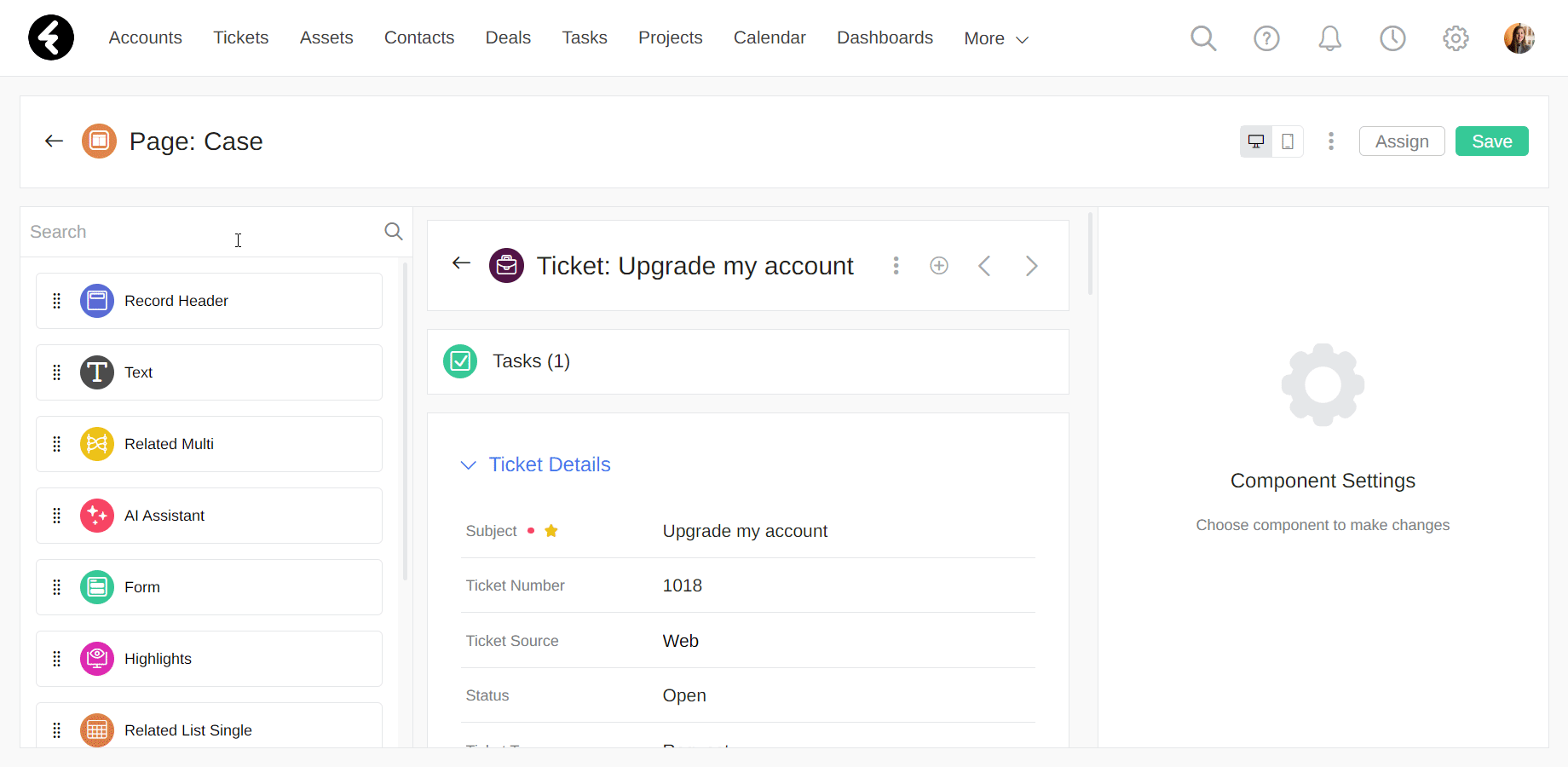
AI generated fields
The AI assistant uses the Description field of a ticket to generate five different fields, which can help you work with tickets. These fields will be filled in as soon as your ticket is created. Updating a ticket in any way, including changing its Description field, will not change or update the AI generated fields.
It will automatically analyze any tickets which are created in your system, whether they come from an internal or external source. As the fields are generated by the AI, they are read only fields and you cannot change their value.
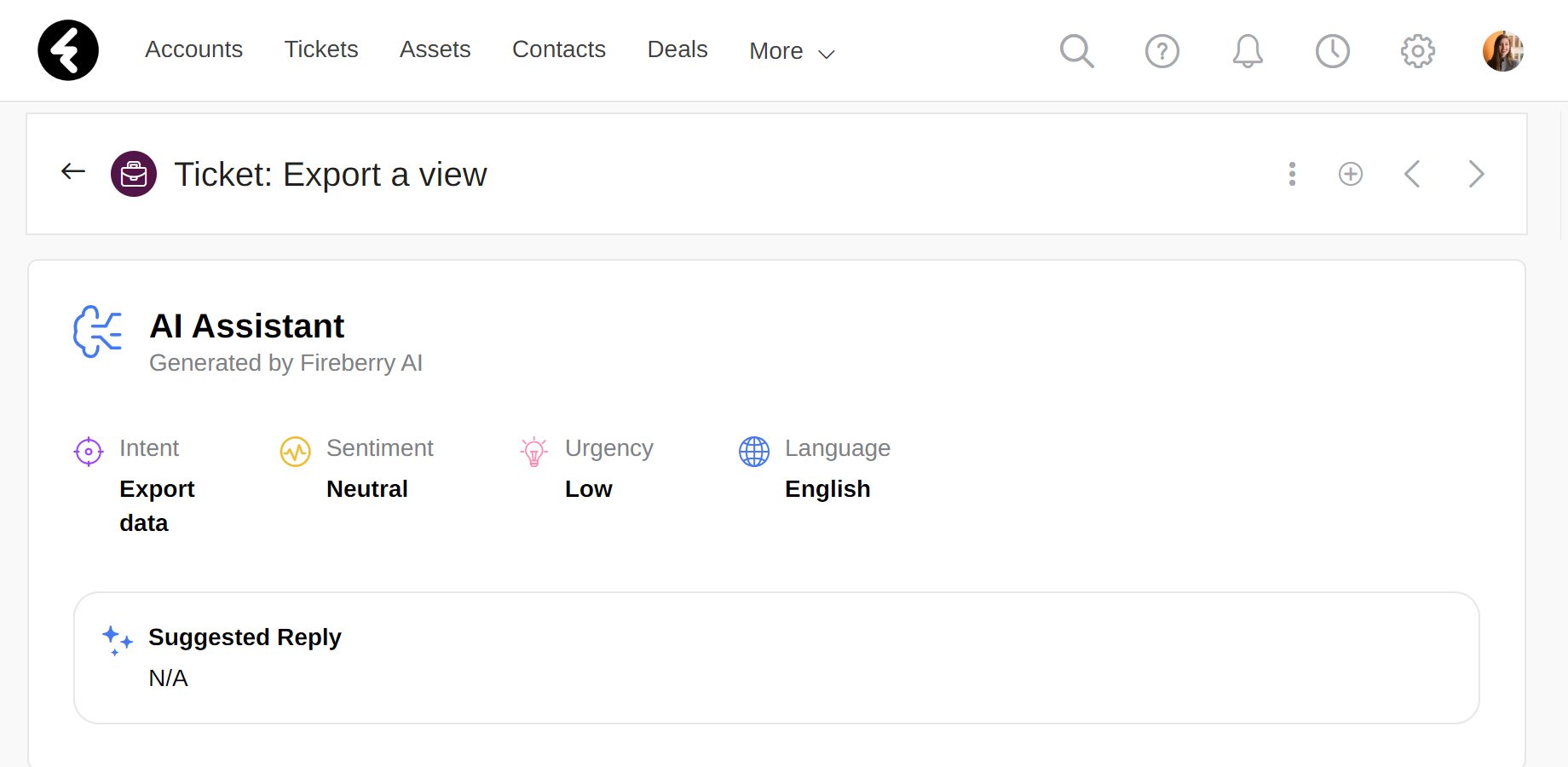
Intent
The intent field is an open text field generated by the AI assistant. It will come up with up to three words which summarize the ticket’s description field. This gives you a short overview on the purpose or main message of the ticket. You may wish to use the intent field to glance over tickets and quickly understand their intent.
Sentiment
The AI assistant will choose from one the following three options: Positive, Negative, and Neutral to fill the sentiment field. In addition to providing one way to categorize your tickets, this is a great way to assess the general mood of your client without having to read the entire ticket. For example, positive words such as “thank you” or “great” may lead to the positive sentiment, while the negative sentiment may be displayed for messages with the words “upset” or “error”.
Urgency
By using the urgency field you can easily sort and prioritize tickets. The AI assistant will analyze the ticket and assign one of three urgency levels: High, Medium, and Low. You can then create views or allocate records based on their inferred urgency. For example, if a customer uses a timeframe word such as “ASAP” or says they are experiencing an important error, their ticket will most likely be categorized as high.
Language
The language field contains the language predominantly used in the description field. You can use the language field to easily sort tickets by their language. This is especially helpful for companies which receive multilingual inquiries, and have different representatives and teams for each language. You can easily sort and allocate tickets based on their language.
Suggested reply
The suggested reply field is an open text field which will provide you with a suggested response which you can send to customers. You can easily copy the response by hovering over it and then clicking the copy icon on the right. Then you can paste it directly into an email in your stream, or anywhere else you’d like. You may wish to tweak the text slightly to add a personal touch. The text of the suggested reply will be in the language the ticket was written in, meaning the language of the Description field. For example, if the description of the ticket is in German, the suggested reply will also be in German.

Not applicable (N/A)
If the AI does not find a relevant response or category for one of its fields, the specific field will instead be filled in with the term N/A. This generally happens in cases which are specific to your organization, and ensures that these fields remain as accurate as possible.
AI field uses
You can use the AI generated fields for a variety of different things throughout your system. They can help you easily organize and allocate tickets, send personalized responses to customers, and more. Some helpful uses are detailed below.
Forms
You can easily add the AI generated fields to any ticket form. To do so, simply open a ticket page layout, which was explained in detail above, and then open the form component settings. Follow the instructions here under the existing fields section to search for and add any of the generated fields. By adding these fields to your form, you can choose to only display the fields which are relevant and helpful to your organization. It also allows for easy copying of all the field values.
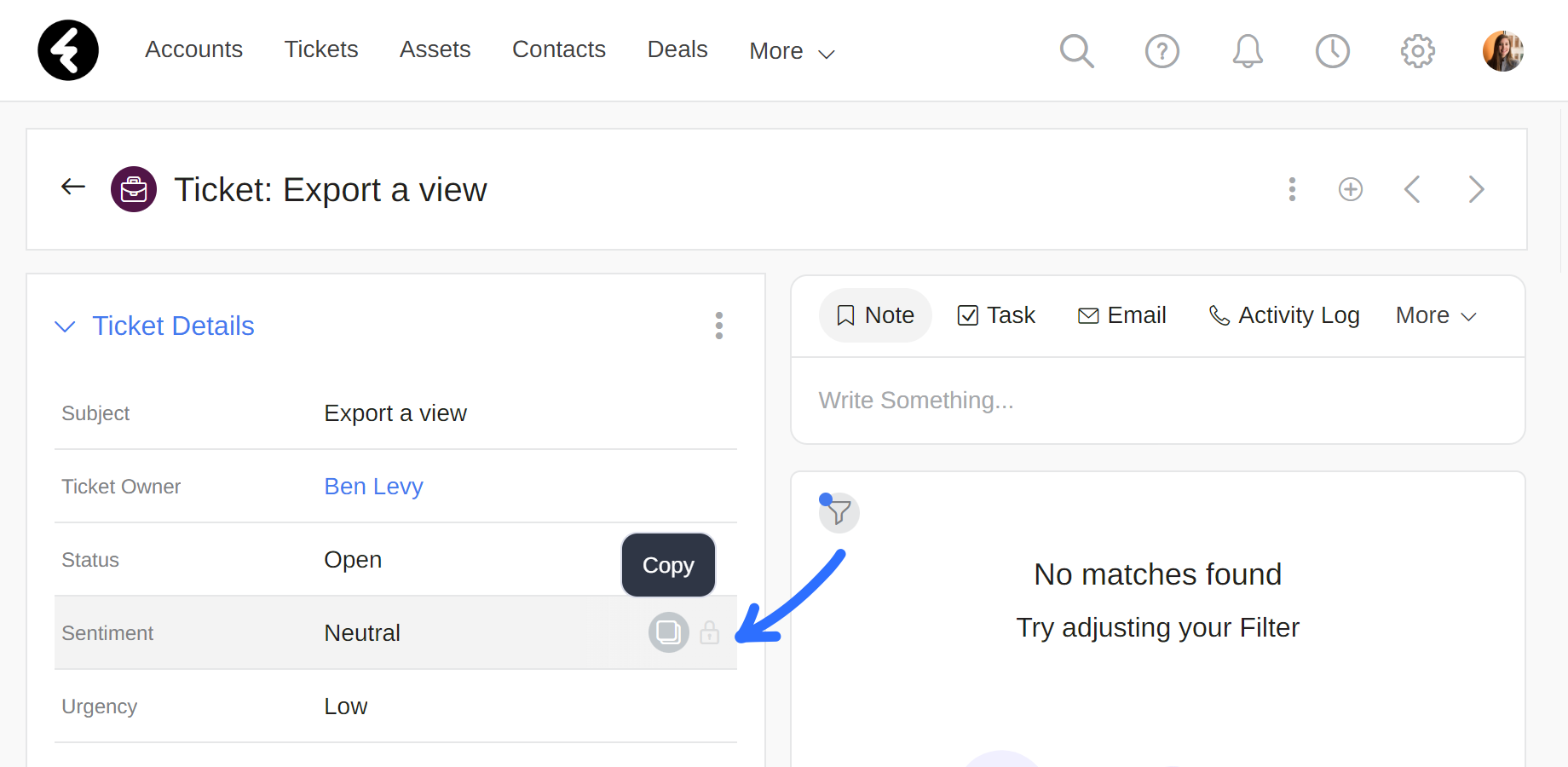
You can also use the AI generated field in the conditional visibility of any component, section, or field, which you can learn more about here.
Views
By creating views based on the generated fields, you can easily categorize tickets by their language, importance, or urgency. This can help you know which tickets to prioritize, and which representative should be in charge of each ticket. To start, create a new view in the tickets object, and then use the Filter option to create conditions using the AI generated field. For example, you can create a view labeled Important Tickets EN which displays all the tickets if the Language field Equals English and either the Urgency field EqualsHigh or the Sentiment field Equals Negative. To learn how to edit views and set up filters, click here.
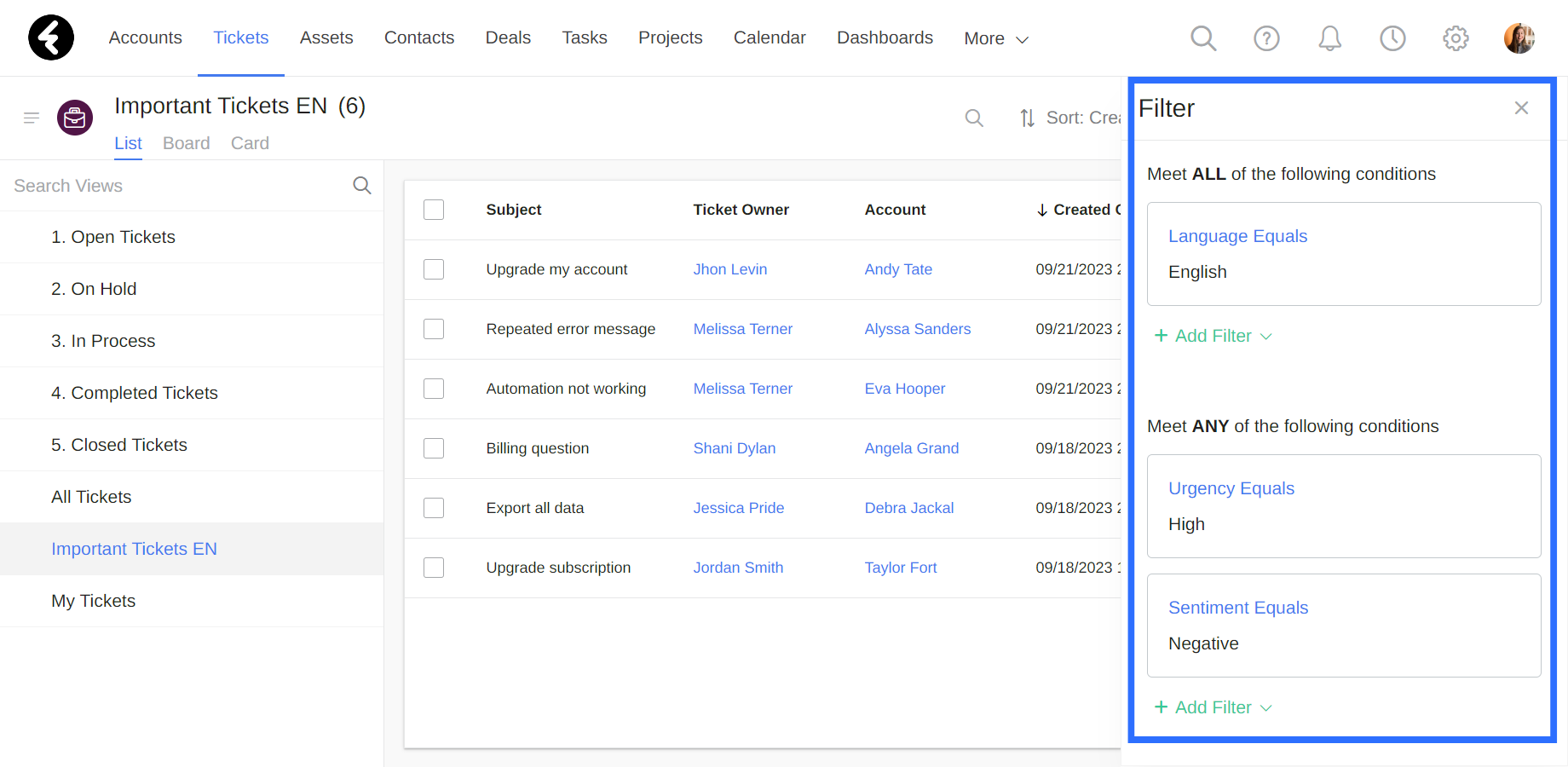
Automations
One great way to use the AI generated fields is for automations. For example, you can build an automation which assigns the Ticket Owner of tickets based on the language of each ticket. To start, choose the Ticket as the object type and then set the When section of the automation to activate whenever a Ticket is created. Next, under the If section, set a filter which checks if the Language Equals English. Under the Then section, select Update Record, which will open a page where you can update the ticket owner field. Set the field to Ticket Owner, the type to Lookup, and then select the system user you’d like all the English tickets to be assigned to. If this is too broad of a categorization, you can add more sections to the filter, such as the urgency or sentiment of the ticket. Once you activate your automation and click Save each incoming ticket which meets the filters set will be assigned a Ticket Owner automatically. Check out our automations article here to learn more.
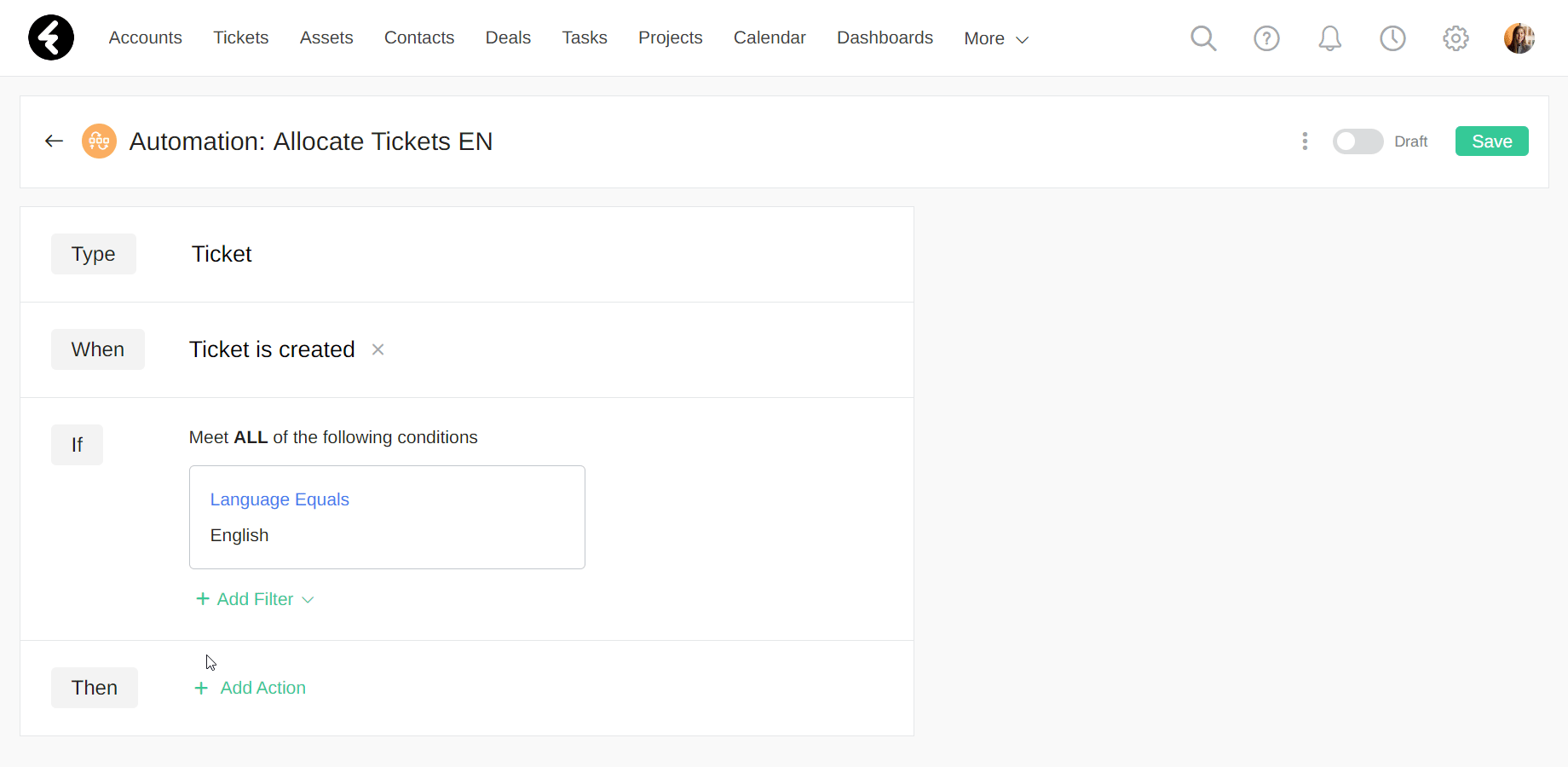
In the above example, you may wish to create a second automation for all tickets where the language does not equal English. In this way, every ticket will be allocated to the relevant representative, depending on the language of the ticket.
Field references
You can also choose to use field references to respond to open tickets automatically. For example, you can use the intent field to give a more personalized email response to a ticket. To start, create an automation which sends an email to the client whenever a ticket is created. Next, make sure the intent field is filled out by setting the If section to Intent is not empty. Now add a Send email action and set the relevant fields. Click the { } curly brackets at the bottom of the email to find the Intent field reference and insert it wherever you’d like in your email. Your email will now contain a more personal note showing your customer you see their main concern and will be in touch shortly. To learn more about field references, click here.
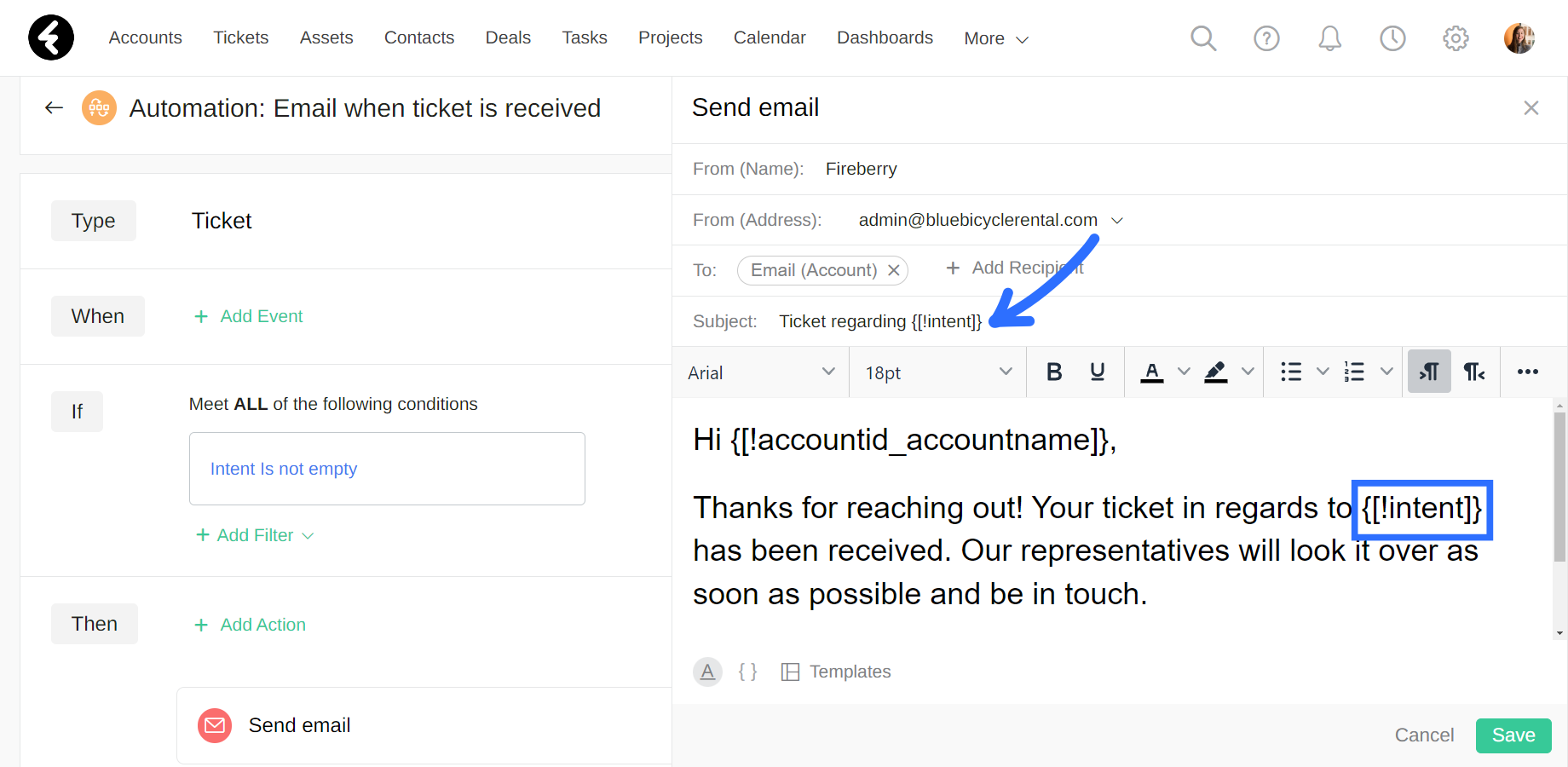
AI assistant quota
Each Fireberry organization receives a set quota of AI tickets which the AI assistant will analyze each month. Each newly created ticket will automatically be analyzed by the AI assistant, and will subtract one AI ticket from your total amount. If you run out of AI tickets, the AI generated fields of any new tickets will fill in with the term N/A instead of the AI generated responses.